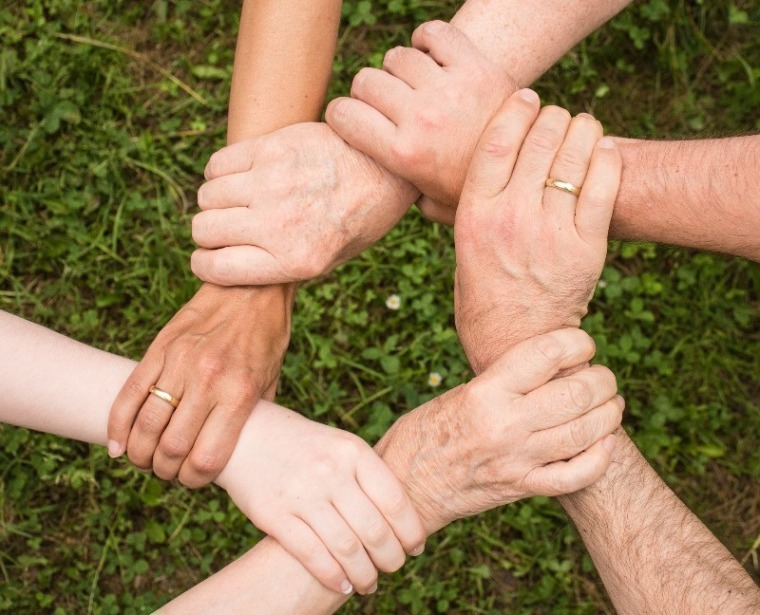
Resilience is something I write about a lot.
As a word, it didn’t mean too much to me until I was diagnosed with C-PTSD, Burnout and Anxiety.
That day, as I sat dazed and somewhat panicked in my doctor’s office, I didn’t know the deep well of strength that I would need to wade through the chaotic mess that was now my state of being.
I also didn’t know that this very resilience, quiet and subtle yet firm, would appear to others as vulnerable, listless and weak.
The reality is resilience looks so different for each one of us.
I am half-Italian; I have dark, olive-toned skin. When it comes to the harsh New Zealand sun, I am much more resilient than my lighter-skinned friends.
But is that a triumph of mine to boast about?
Or is it merely the way the chips (or genes) landed, calling only for an extra dose of sunscreen on your part and an extra dose of understanding to seek extra shade on mine?
(Btw, you can count on me to always bring extra sunscreen to the beach.)
“Do you know how resilient you are?”
In that first week post-diagnosis, I was given this affirmation by three different people: my doctor, who undertook to lead me through a massive (and still ongoing) journey of recovery; my physiotherapist, who helped me to walk again without pain; and my counsellor, who taught me the beginnings of managing panic attacks, depression and a visceral fear of certain people and situations.
They spoke a foundation of courage into my journey, and somehow I believed that I would be okay.
Yet from other sources – older, often Christian, sources – the message was very different:
You need to toughen up.
Young people these days have many more demands.
Missionaries these days are so much less resilient.
But “these days” is the point.
Because “these” are the days in which said person is existing.
Not “those” days, in which the speaker fondly remembers their own triumphs and successes, but “these” days wherein the potholes and weeds lie in very different places.
Like many millennials, Gen Z-ers, rapidly-approaching-middle-agers, I find myself increasingly frustrated with the overly dismissive attitude of older generations.
Despite having some very dear people who fall into this category, it’s not hard to see why this phrase has become such an established expression:
OK Boomer
“These days”, being a millennial means being guilt-tripped for eating an avocado.
We’re asked why we haven’t settled into the business of making a family. We’re constantly hounded about our lack of home purchase. Meanwhile, we collectively give up on the dream of ever owning a 20sqm apartment, and resign ourselves to long-term middle-aged flatting scenarios, because “Auckland’s median multiple is 10.”
“Which means median house prices are 10 times the gross median household income,” according to Stuff.co.nz.
So we’re struggling to pay weekly rent, while battling an increasingly dog-eat-dog job market, in a world that is hurtling towards the brink of irreversible climate catastrophe…
And all the while we are told that the rise in mental turmoil and despair is due to our own lack of resilience.
The truth is that one can’t compare resilience across such diverse contexts and eras.
Perhaps you were indeed the epitome of resilience “back in the day”. And perhaps, here in the present day, I am the one holding fast to resilience.
No one watches their 67-year old grandmother learning to WhatsApp her grandkids, compares her to a 28-year old business manager, and concludes “Gold Card holders these days are so dumb when it comes to technology”.
The understanding is that Grandma did not grow up in the context of “these days”.
She was born in “those days”.
Touch screens were not a thing in her school years. Carrying a dictionary, encyclopaedia, calculator, phone book and library in her back pocket was not the norm.
Likewise, a 9-year old “these days” is unlikely to worry about accidental lead poisoning from their favourite train set. But they too are living in a completely different world to “back in the day”.
“These days”, their brains are trying to develop in a world that requires super speed tech-savvy while drowning their minds in information. Their playtime has far less outdoor access than other generations enjoyed, they will likely never know a world without shooting drills in school, and social media has them terrified that their TikTok following is the sole definitive of their value.
There are a thousand reasons why your experiences are unique to your generation.
And so it is for EVERY generation.
In “those days” you had to watch for cow pats while you walked barefoot to school. “These days” kids watch for high-speed vehicles and can’t walk to school due to road safety reasons.
If the reality is that each generation lives and experiences a completely unique and contextual existence (and the mere phrases “back in my day” and “these days” indicates that this is true), then it stands to reason that the last approach we should take to other generations is comparison, shaming or blaming.
Imagine if “OK Boomer”, “kids these days” and even “homeless avocado consumers” slowly fell out of fashion.
Imagine if respect, interest and empathy were to become the modes by which we speak of, listen to and engage with multiple generations.
Imagine if the incredible diversity, adaptability and resilience of our species was not a cause for frustration, egotism or demeaning, but celebration.
Imagine if the only noteworthy aspect of “these days” was that those of us who dwell in them all get along.
Regardless of which generation we hail from.

Emma is an Italian-South African with a New Zealand passport and an international heart. She spent years training student choirs and co-running a puppeteering business, before working for a humanitarian organisation in New Zealand (7 years) and Papua New Guinea (3 years). Currently a nomad living between various countries and towns, Emma's deep joy is in writing, music, cooking up an Italian storm, and taking time to listen to people’s stories.
Read Emma's creative expressions at http://www.girlkaleidoscope.wordpress.com or https://pngponderings.wordpress.com/2016/09/02/finding-the-beauty/
Emma’s previous articles may be viewed at www.pressserviceinternational.org/emma-mcgeorge.html